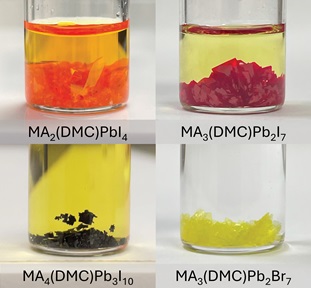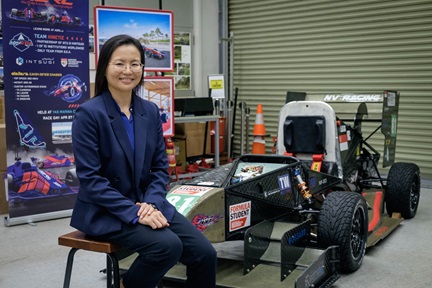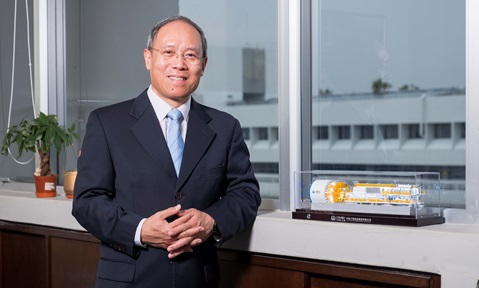Biology meets engineering to tackle chronic conditions
Asst Prof Dang Thuy Tram and members of the Dang Group combine biomaterials, drug delivery and cell therapies to solve complex medical challenges.
Thanks to advancements in medical science, we are living longer than ever before. However, this boon is counterbalanced by the prevalence of chronic conditions. Globally, approximately half of all adults are affected by at least one chronic condition, a statistic that rises to almost 90% among the elderly.
Conditions such as diabetes and arthritis can lead to severe complications, considerably impairing quality of life. By leveraging our collective expertise in tissue engineering, biomaterials and human physiology, my research group is pioneering approaches for chronic disease management.
Needle-free solutions for diabetes care
Individuals with Type 1 diabetes or insulin-dependent Type 2 diabetes often rely on regular insulin injections or insulin pumps to maintain their blood glucose at healthy levels. Such methods, however, do not emulate the body's natural insulin production perfectly, leading to a substantial proportion of patients experiencing dangerously low blood glucose episodes. Moreover, insulin therapy requires patients to meticulously manage their insulin levels and adhere to stringent dietary and exercise regimes, which can impair their quality of life.
Our team has developed a novel implant that houses insulin-secreting cells, either isolated from the pancreas of healthy donors, or derived from stem cells. Designed to be implanted under patients’ skin, the device senses blood glucose concentrations and secretes the right amount of insulin in response, providing precise glucose regulation without the need for regular injections.

The cells within the implant are encapsulated in a special hydrogel, a soft, water-based material that protects the cells from immune system attacks. The advantage of this is that patients may not need to take daily immunosuppressants, avoiding adverse side effects associated with the drugs. Additionally, the implant's design facilitates optimal cellular oxygen uptake, which is crucial for the implanted cells to survive and thrive.
Our prototype implant has been shown to be effective at normalising blood glucose levels in mouse models of diabetes. We are currently exploring a more sophisticated prototype for potential human trials.
This technology, currently under patent application, has garnered national and international accolades. It triumphed in the healthcare category at the 2022 Prototypes for Humanity programme, which recognises the top 100 global innovations with societal benefits. Our technology also placed second at the 2022 China-ASEAN Innovation and Entrepreneurship Competition, the 2021 MIT Club of Singapore 15k Competition and the 2021 Society for Biomaterials Business Plan Competition.

Responsive drug delivery for arthritis pain relief
Arthritis, a condition that causes joint pain, swelling and stiffness, is a debilitating disease especially prevalent in the elderly. Treatment typically involves anti-inflammatory medications to alleviate symptoms and pain.
Finding the “sweet spot” in medication dosage for arthritis is crucial, as high doses can cause side effects, while low doses might not be sufficient to be effective.
To address these issues, we have engineered a novel drug delivery system that is activated by inflammation. Our device dispenses a precise dose of anti-inflammatory medication, specifically targeting the inflamed tissues.
This unique inflammation-responsive system comprises a special hydrogel that releases drugs in the presence of inflammatory enzymes, allowing for a more targeted and effective treatment for arthritis.

In mouse models of chronic inflammation, our system has shown promise, being effective, safe and non-toxic. Current evaluations are underway in rat models of arthritis and we are working with our clinical partners in a local hospital to evaluate our hydrogel in human joint fluid, in preparation for future clinical trials.
This patent-pending invention has received several awards and was a finalist in national and international entrepreneurship competitions, including taking the third prize at the 2022 Society for Biomaterials Business Plan Competition.
There is tremendous potential in integrating biology with engineering to address chronic diseases, and our team is excited about converting innovations at the bench into clinical solutions, with the ultimate aim of enhancing human health and well-being.
By Dang Thuy Tram and members of the Dang Group
innovative medical devices and drug delivery systems to treat chronic conditions ranging from arthritis to diabetes.
Read more about the innovations in Acta Biomaterialia (2020), DOI: 10.1016/j.actbio.2020.09.026; Inflammation responsive anti-inflammatory hydrogels (2021) (WO 2021/112772 A1), World Intellectual Property Organisation; and Therapeutic hydrogel device (2020) (WO 2020/204829 A1), World Intellectual Property Organisation.
The article appeared first in NTU's research & innovation magazine Pushing Frontiers (issue #22, August 2023).



.tmb-listing.jpg?Culture=en&sfvrsn=29c7e020_1)
.tmb-listing.jpg?Culture=en&sfvrsn=55153609_1)


